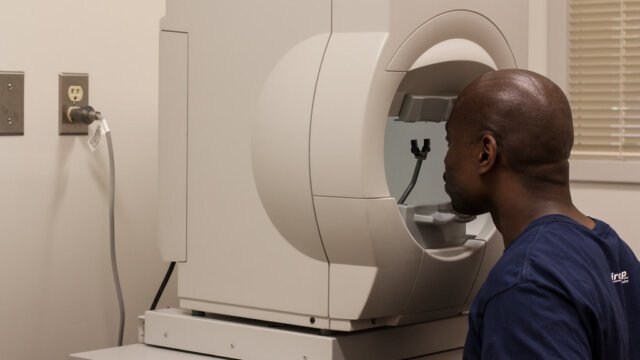FTC disclaimer: This post may contains affiliate links and we will be compensated if you click on a link and make a purchase.
Though fish oil side effects are rare, you might experience a few fish oil side effects that will eventually diminish and go away when starting a fish oil pill.
These fish oil side effects can include nausea, belching, bad breath, and sometimes diarrhea.
Typically, there are no fish oil side effects for healthy people taking a dosage of not more than 3 grams (3,000 mg) per day.
However, if you suffer from any pre-existing medical condition, take any medications with which fish oil might interact, or have a fish allergy, you should consult with your physician before taking an Omega 3 fish oil supplement.
If these fish oil side effects don’t go away after about a week to two weeks after beginning the fish oil pill, you may want to switch brands as one brand might affect you differently from the next.
Starting Slow
Many fish oil supplements suggest taking one pill three times each day.
To reduce the fish oil side effects you experience, you might want to start with one fish oil pill once a day for the first three days.
After that, go for one pill twice a day for seven days and then go up to the full three pills a day.
Quality Counts
When talking about fish oil side effects, it’s important to understand that the better quality your fish oil supplement is, the less likely you will experience side effects.
Fish Oil Side Effects
Let’s look into some of the possible side effects of fish oil.
Gastrointestinal Upset
According to studies, you may experience an upset stomach as a fish oil side effect.
Diarrhea is also possible, with the symptoms being more severe with very high doses of fish oil.
Burping, heartburn, and a fish aftertaste are also possible.
To reduce experiencing these gastrointestinal side effects, you can take your fish oil with meals. You may also want to start with low doses and gradually increase your target dosage.
Metal Poisoning
You’ve probably heard that some fish, such as Largemouth Bass, Sturgeon, Shark, Swordfish, King Mackerel, farm-raised Salmon, and Tilefish, can contain heavy metals, such as mercury.
And other industrial and environmental contaminants, including;
- PCBs (polychlorinated biphenyls)
- Dioxins
These are particularly dangerous for pregnant or nursing women.
However, this side effect applies more to eating fish directly because the oil, even in contaminated fish, carries little of the pollutants.
While fish oil can contain these contaminates, this is not a significant problem with purified, commercial fish oil products.
Allergic Reaction
According to a report, some people who are allergic to seafood such as fish might also be allergic to fish oil supplements.
If you already have a seafood allergy, you should avoid fish oil supplements or use them cautiously.
Moreover, anyone allergic to fish needs to start with very low doses of fish oil.
However, low-quality fish oil supplements say “fish oil” or “marine lipids” on the label.
In such cases, you can’t be sure what is in the supplements, and you should avoid this supplement altogether.
Loss of blood clotting ability
If large fish oil doses (more than 3 grams per day) are taken, the Omega 3 may increase the risk of bleeding, taking the form of nosebleeds, blood in the urine, or even a stroke.
Further, studies state that fish oils taken at high doses appear to prolong bleeding time and may reduce your blood’s ability to clot.
Lowering Of Blood Pressure
People with low blood pressure and those taking blood pressure-lowering medications should be cautious when using fish oil supplements.
Studies have shown that Omega 3 fatty acids cause a slight reduction in blood pressure, although higher doses cause more significant reductions.
Moreover, if you take prescribed beta-blockers, ACE inhibitors, and alpha-blockers to lower blood pressure, fish oil will reduce it even more.
Low blood pressure is good, but you don’t want it too low. You should consult your doctor before taking fish oil supplements if you have blood pressure issues.
Blood Thinning Properties
If you are already taking drugs like anticoagulants (blood thinners) or nonsteroidal anti-inflammatory drugs, you need to consult your doctor.
Studies indicate that fish oil has natural blood-thinning properties along with other health benefits.
So, if you combined prescribed blood thinners with fish oil, you could further thin your blood.
Increase Consumption of Vitamin E
According to research, consumption of Omega-3 fatty acids will increase the consumption of vitamin E depending on the degree of the unsaturation of Omega-3 fatty acids (PUFA).
As a result, Vitamin E is mainly added to many commercial fish oil products to avoid this fish oil side effect.
Further, regular use of vitamin E-enriched products may lead to elevated fat-soluble vitamin levels.
Suppress HIV/AIDS Patient’s Immune System
Research studies have indicated that higher doses of fish oil can suppress the body’s immune system response.
Therefore, people whose immune system is already weak, such as those with HIV/AIDS, should be cautious about this fish oil side effect.
Other Fish Oil Side Effects
The other possible symptoms that show when you are taking too much fish oil are;
- Loose stools
- Acid reflux
- Bad breath
- Burping that tastes like fish oil.
If you have any of these symptoms, lower your dosage until they disappear.
Effective Fish Oil Dosage
The effective Omega 3 fatty acids dosage ranges from 3 to 5 grams per day, as per studies.
Also, you need to read the label on your fish oil supplement and see how many pills to take to reach this amount.
Further, if you are going through any medical conditions such as;
- High blood pressure
- Blood clotting problems
If you are on any prescribed medication, make sure you have consulted with your doctor before taking fish oil supplements.
Conclusions
Only you can decide whether these possible fish oil side effects outweigh the specific benefits of taking fish oil supplements.
If any of the conditions described in this article apply to you, consult with your health care provider before taking or increasing your dosage of fish oil supplements.
However, healthy people who take not more than 3,000 mg a day of fish oil should experience no significant side effects from a pure, molecularly distilled fish oil supplement.








